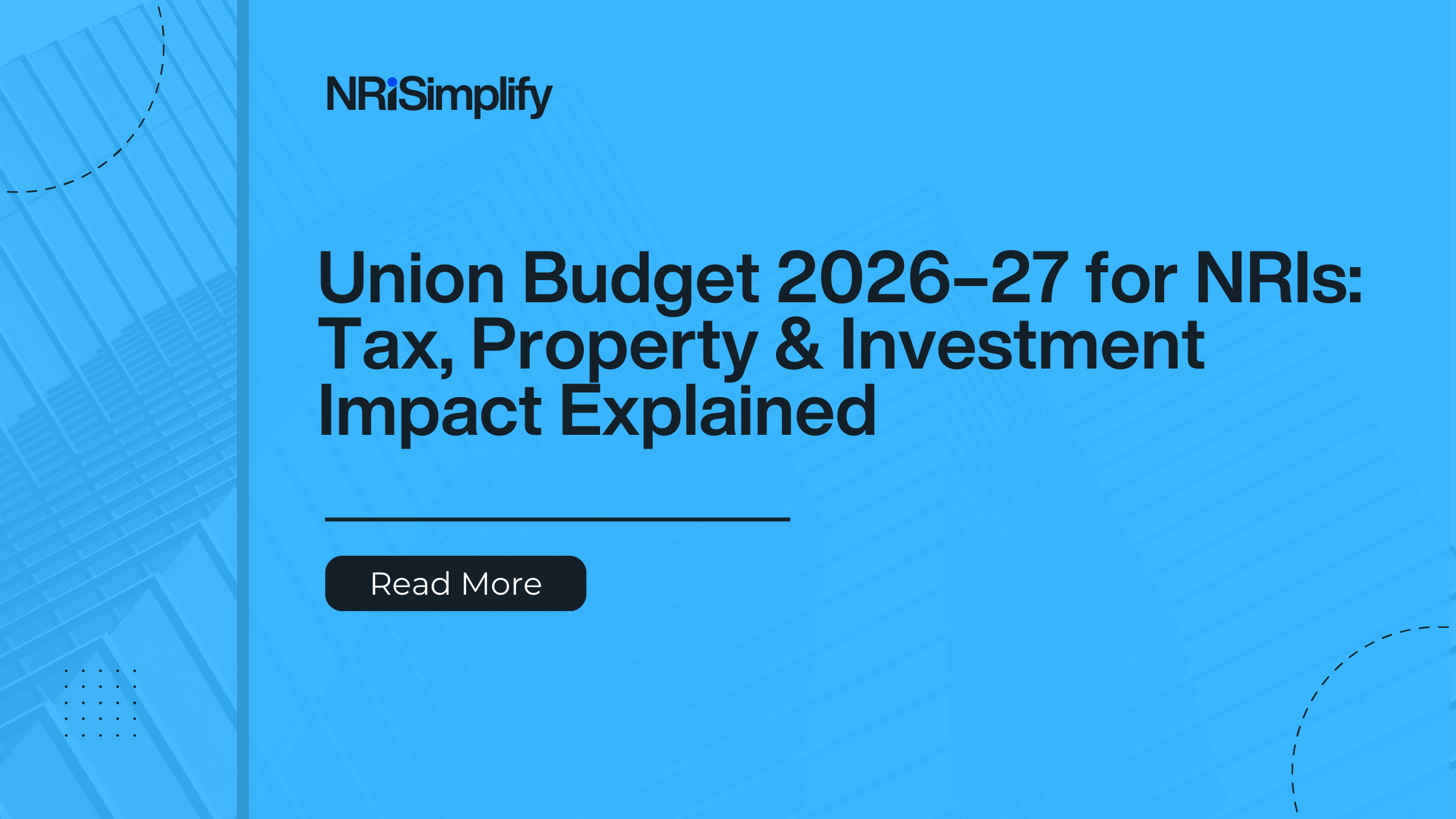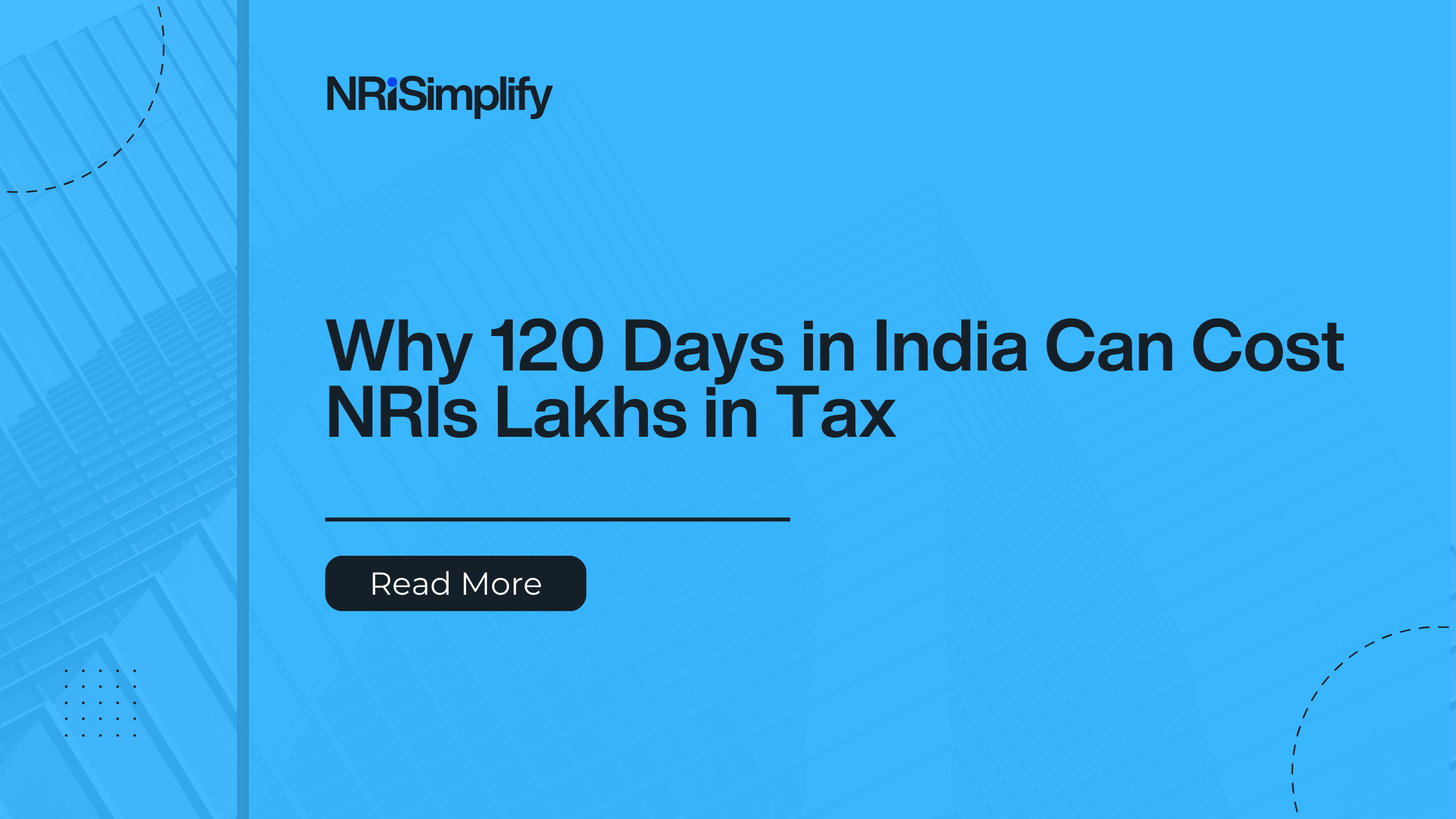For Non-Resident Indians (NRIs) who earn income both in India and abroad, understanding how to avoid double taxation is crucial. The Double Taxation Avoidance Agreement (DTAA) for NRIs ensures that they are not taxed twice on the same income—once in India (source country) and again in their country of residence. By leveraging the benefits of DTAA, NRIs can save taxes, simplify compliance, and maximize their financial outcomes.
In this guide, we’ll break down how DTAA works, how to claim tax relief, and actionable steps for NRIs to navigate this process seamlessly.
What is the Double Taxation Avoidance Agreement (DTAA)?
The Double Taxation Avoidance Agreement (DTAA) is a tax treaty between two countries designed to prevent NRIs from paying taxes on the same income in both countries. It applies to various types of income, including:
- Salary earned in India
- Rental income from property in India
- Capital gains from asset sales
- Interest from savings accounts or fixed deposits
- Dividends earned from Indian companies
DTAA ensures that NRIs do not face the burden of paying double tax on the same income, promoting investment and simplifying tax compliance.
How DTAA Benefits NRIs
1. Tax Savings:
DTAA allows NRIs to reduce their overall tax liability by claiming tax relief.
2. Transparency:
The treaty makes tax obligations clear and predictable, reducing the chances of double taxation.
3. Avoid Double Taxation:
NRIs pay tax only in one country or can claim a credit for taxes paid in India when filing taxes in their resident country.
DTAA Tax Rates for NRIs
India has signed DTAA agreements with over 100 countries. Here are the DTAA TDS rates for key countries:
| Country | DTAA TDS Rate |
| United States of America | 15% |
| United Kingdom | 15% |
| Canada | 15% |
| Australia | 15% |
| Germany | 10% |
| UAE | 12.5% |
| Singapore | 15% |
| Mauritius | 7.5% to 10% |
These rates ensure that NRIs are not overtaxed when earning income in India.
How to Claim Benefits Under DTAA?
NRIs can claim DTAA benefits using the following methods:
1. Exemption Method:
Under this method, the income is taxed in only one country, and the other country grants a complete exemption.
2. Deduction Method:
Taxes paid in the source country (India) can be deducted from taxable income in the resident country.
3. Tax Credit Method:
NRIs can claim a credit for taxes paid in India against their tax liability in the resident country.
Steps to Apply DTAA Benefits
Follow these steps to claim DTAA benefits:
- Obtain a Tax Residency Certificate (TRC): This certificate proves your residency status and must be issued by the tax authority in your country of residence.
- Submit Form 10F: This is a declaration form required to claim DTAA benefits in India.
- File Income Tax Return (ITR): Report your gross income and taxes paid in India to claim foreign tax credits.
- Provide Supporting Documents: Maintain dividend/interest certificates, TDS certificates (Form 16A), and proof of tax payments in India.
Example of DTAA in Action
Case Study: Megha, an NRI residing in the US, earns a dividend of ₹20,00,000 from Indian investments. As per the India-US DTAA, a 25% withholding tax is applied in India.
| Particulars | Amount (₹) |
| Gross Dividend | 20,00,000 |
| Withholding Tax in India | 5,00,000 (25%) |
| US Tax Liability (30%) | 6,00,000 |
| Foreign Tax Credit (FTC) | 5,00,000 |
| Final US Tax Payable | 1,00,000 |
Megha can claim the Foreign Tax Credit in the US for ₹5,00,000 tax already paid in India, thereby avoiding double taxation.
On What Income Does DTAA Apply?
DTAA applies to the following types of income earned in India:
- Salary income
- Rental income from house property
- Capital gains on asset sales
- Interest on fixed deposits and savings accounts
- Dividends from Indian companies
- Income from services provided in India
NRIs can use DTAA provisions to avoid paying double tax on these income sources.
Key Principles of DTAA
- Tax Treaty Prevails: If a DTAA provision contradicts Indian tax laws, the treaty provisions take precedence.
- More Favorable Option: If both the DTAA and Indian tax law offer tax relief, the option more beneficial to the taxpayer is applied.
- Dispute Resolution: If the treaty is silent on any issue, Indian tax laws provide guidance.
How NRI Edge Can Help
Navigating DTAA provisions and tax filings can be overwhelming for NRIs. At NRI Edge, we offer end-to-end solutions to help NRIs:
- Obtain Tax Residency Certificates (TRC) and file Form 10F.
- Accurately calculate taxes and claim Foreign Tax Credits (FTC).
- Minimize tax liabilities by leveraging DTAA provisions.
- Ensure compliance with Indian tax laws and facilitate seamless tax filing.
Our experts provide tailored guidance to ensure you avoid double taxation and maximize your financial outcomes.
Conclusion
The Double Taxation Avoidance Agreement (DTAA) is an essential tool for NRIs to avoid paying taxes twice on the same income. By understanding the benefits of DTAA, applicable tax rates, and the process to claim relief, NRIs can significantly reduce their tax burdens and ensure compliance.
At NRI Edge, we specialize in NRI taxation, helping you navigate DTAA seamlessly and maximize the benefits. Contact us today to simplify your tax obligations and secure your financial future.
Frequently Asked Questions (FAQs)
Q1: What is a Tax Residency Certificate (TRC)?
A Tax Residency Certificate (TRC) is an official document issued by the tax authorities of your country of residence. It certifies your residency status, allowing you to claim tax relief under DTAA.
Q2: What types of income does DTAA apply to?
DTAA applies to various income types, including salary, rental income, capital gains, interest, dividends, and income from services provided in India.
Q3: How do I claim DTAA benefits in India?
To claim DTAA benefits, NRIs need to obtain a Tax Residency Certificate (TRC), file Form 10F, and report income and taxes paid in India while filing their Income Tax Return (ITR).
Q4: Can DTAA help reduce taxes on rental income from India?
Yes, DTAA allows NRIs to reduce their tax liability on rental income by providing credits for taxes already paid in India, depending on the applicable treaty between India and their resident country.
Q5: Is the DTAA applicable to capital gains earned from property sales?
Yes, DTAA applies to capital gains earned from the sale of property. NRIs can claim relief under the tax treaty to reduce capital gains tax liability in both India and their resident country.
Q6: How can NRI Edge assist NRIs with DTAA claims?
At NRI Edge, we help NRIs obtain Tax Residency Certificates (TRC), file necessary forms like Form 10F, and provide tax planning advice to optimize tax relief under DTAA. Our team ensures that all steps are handled smoothly to minimize double taxation.






